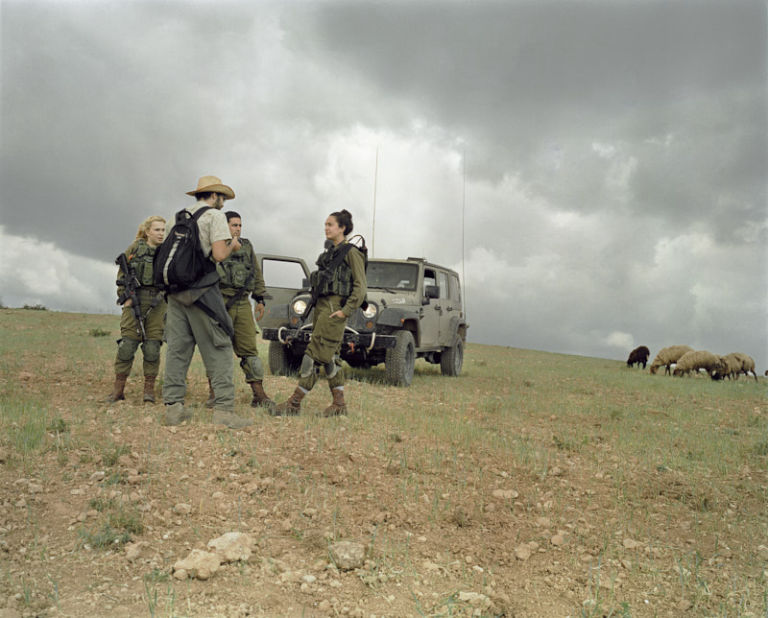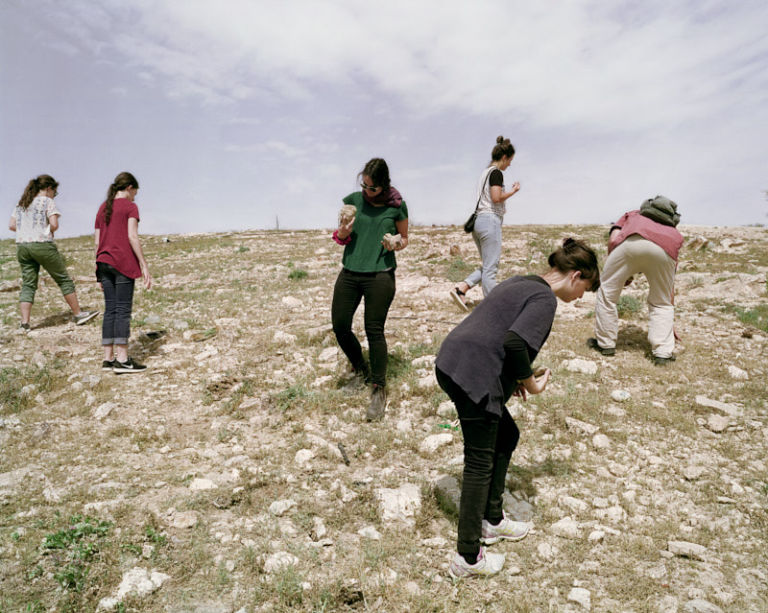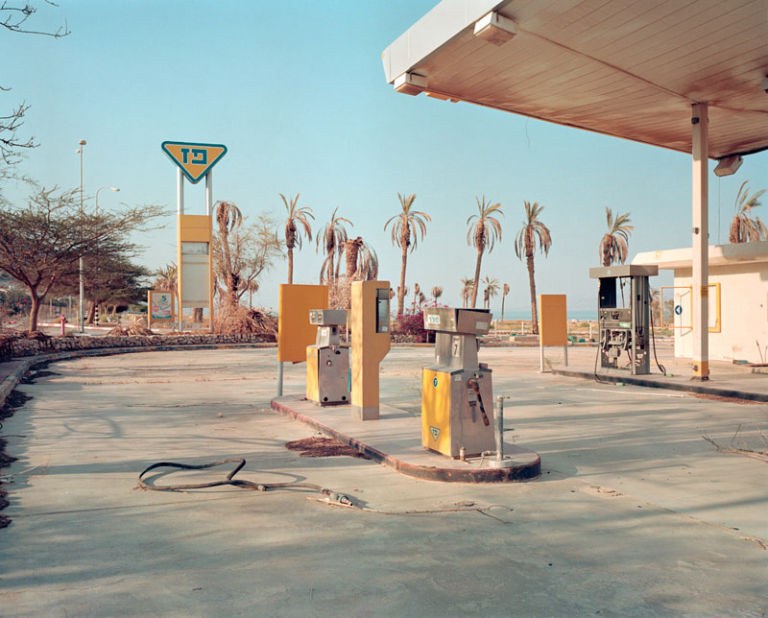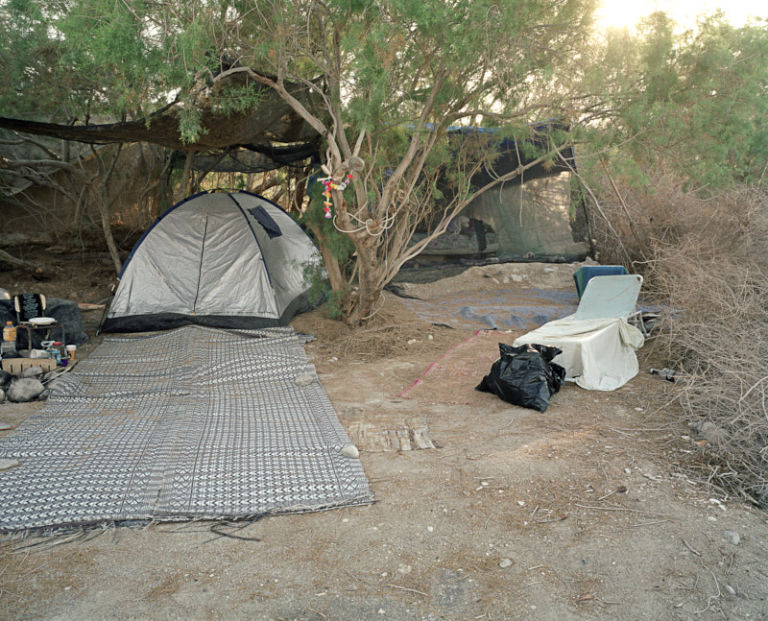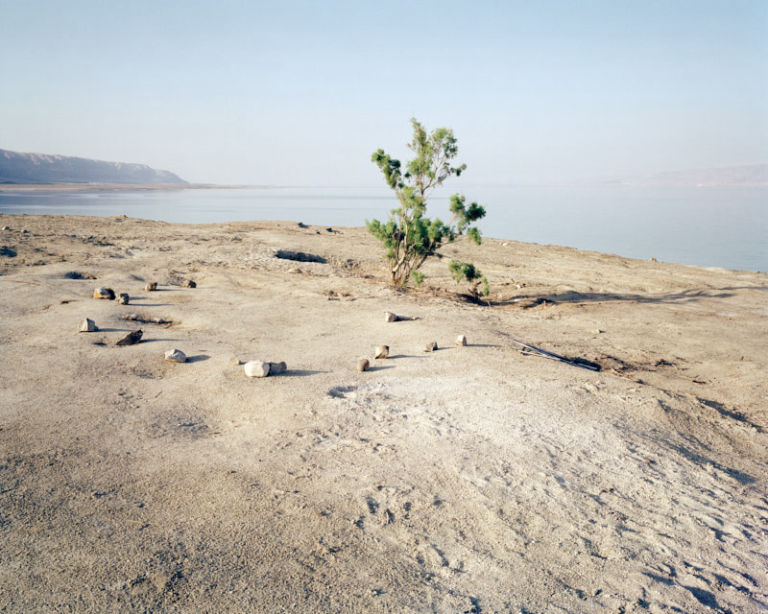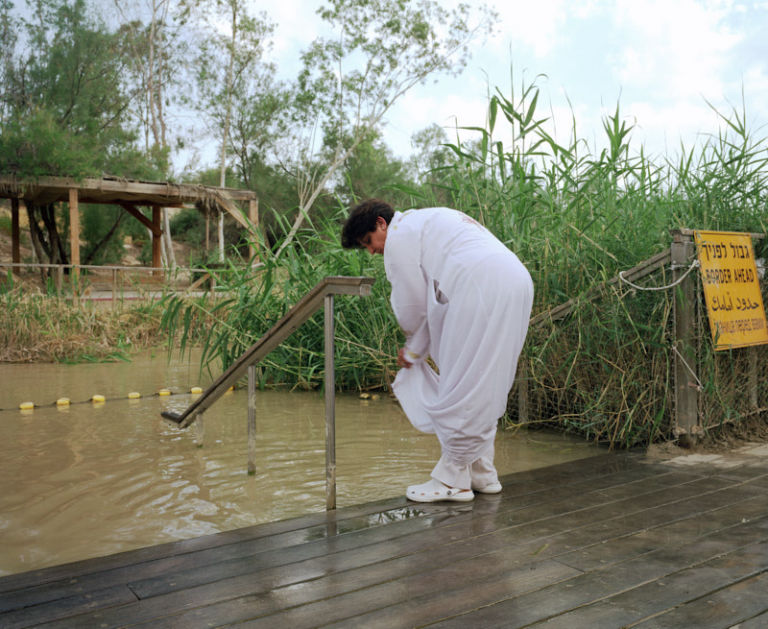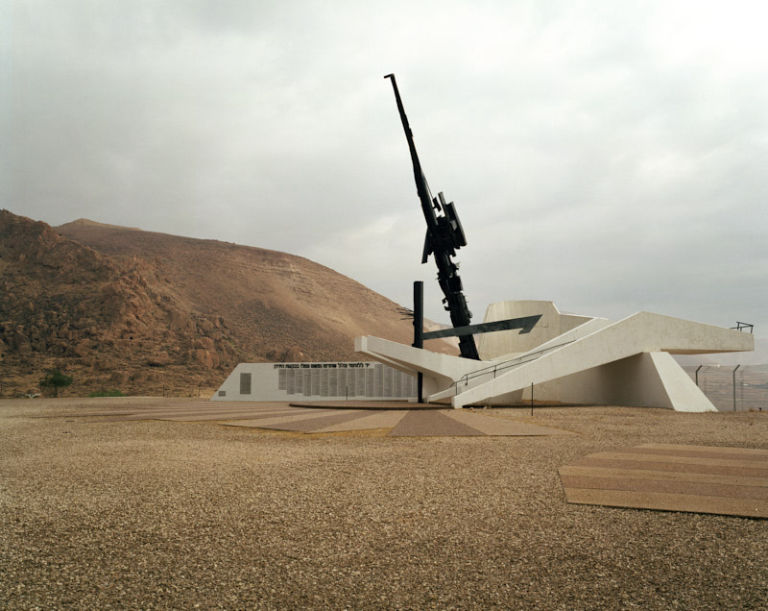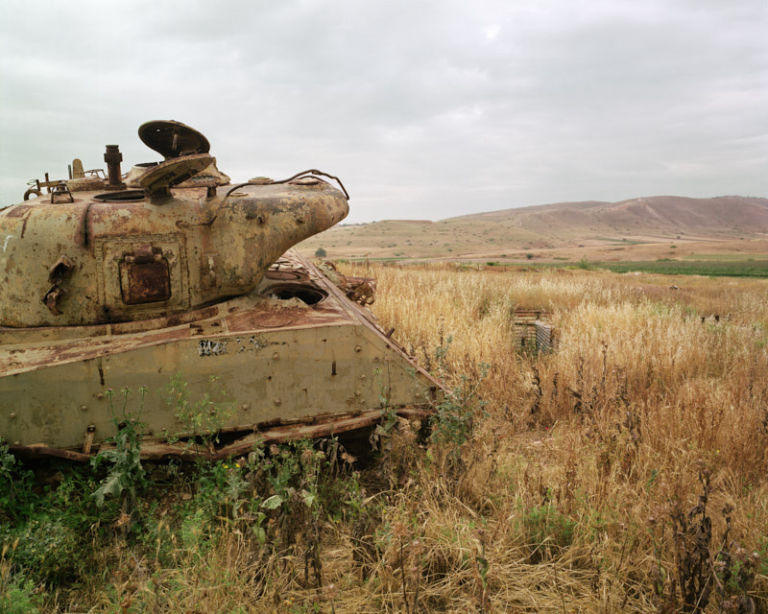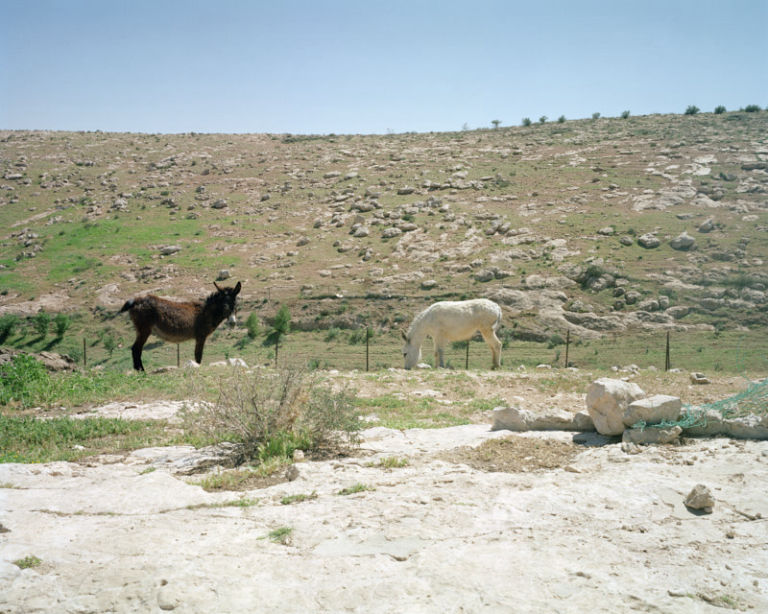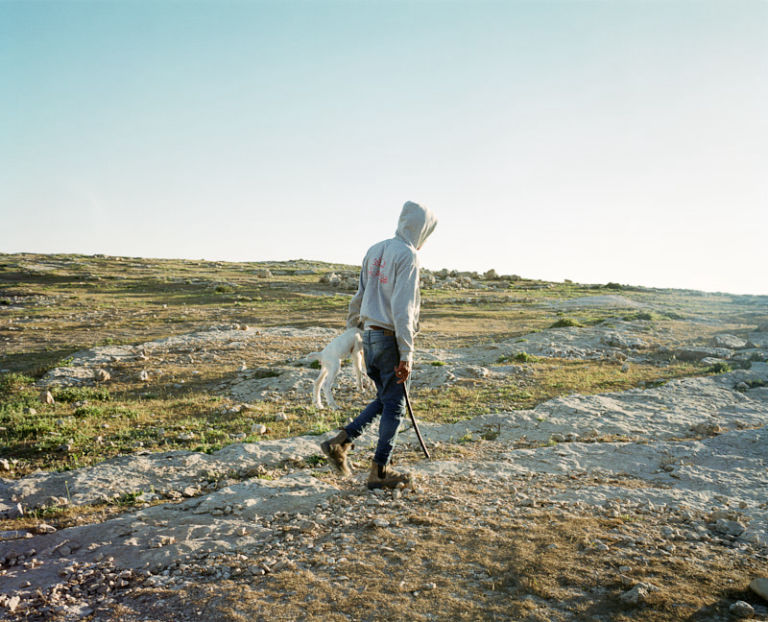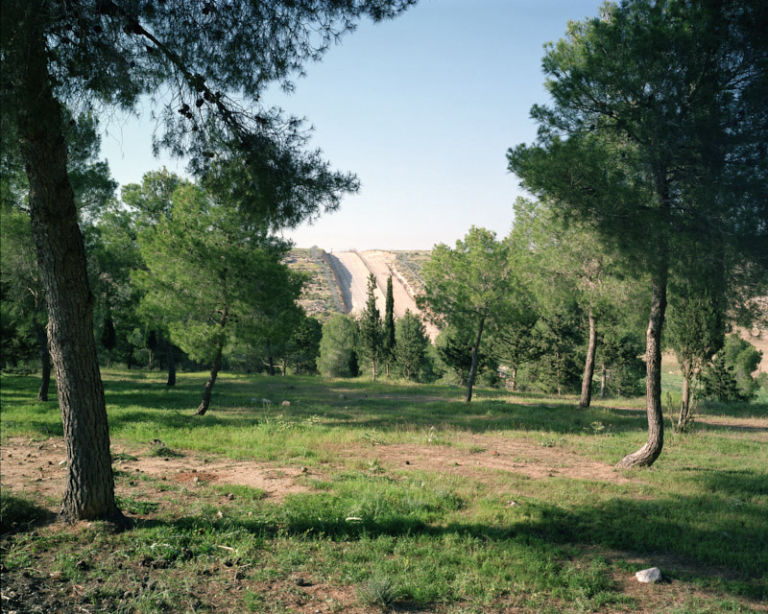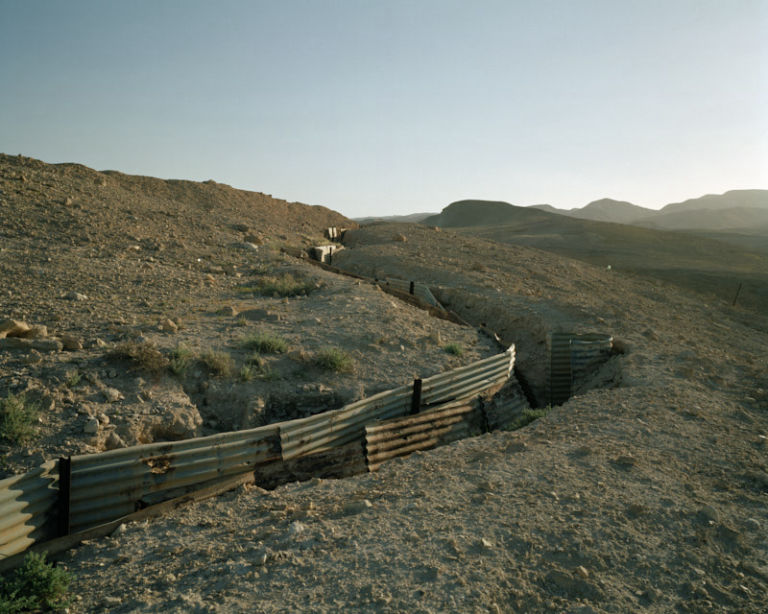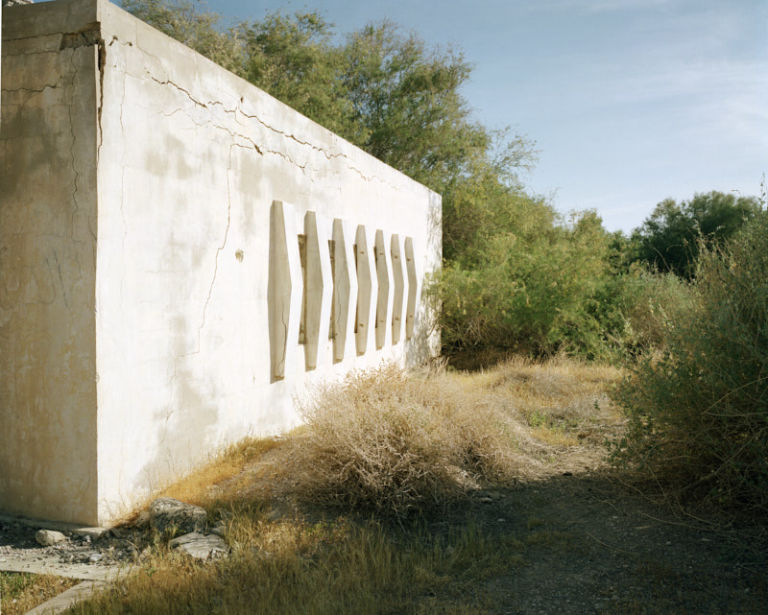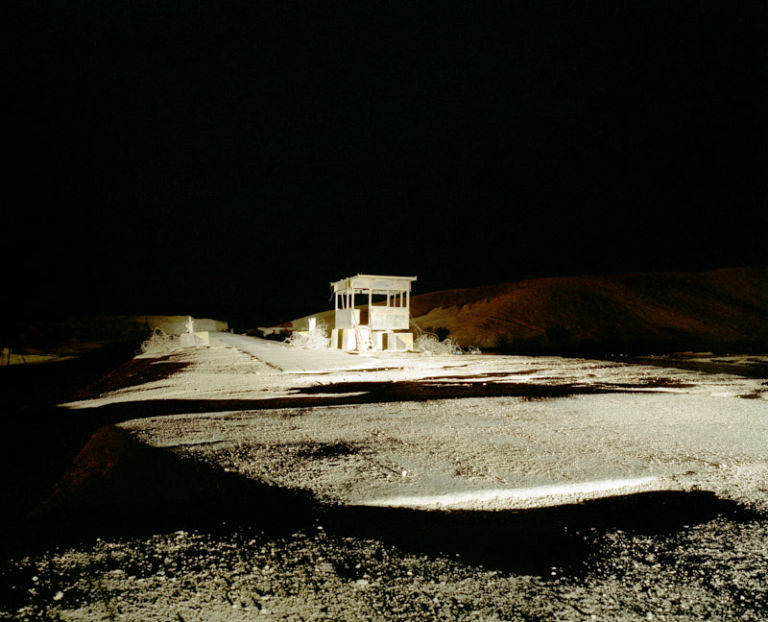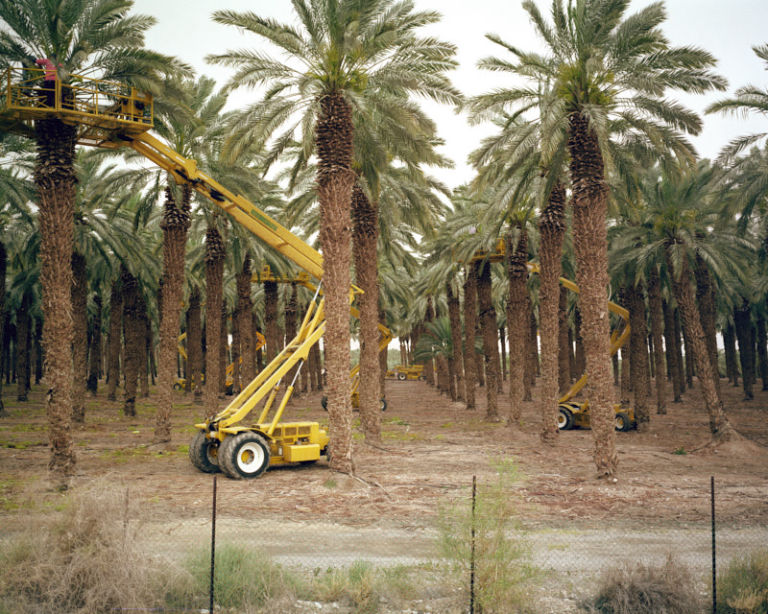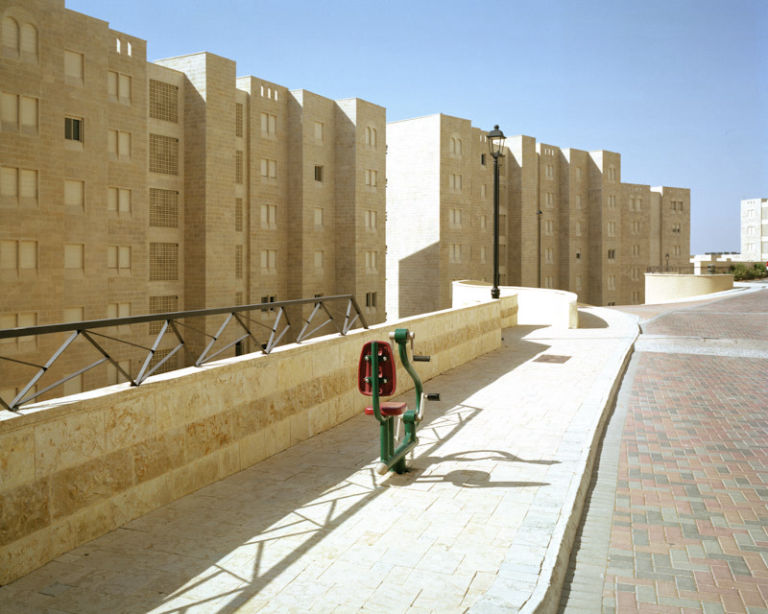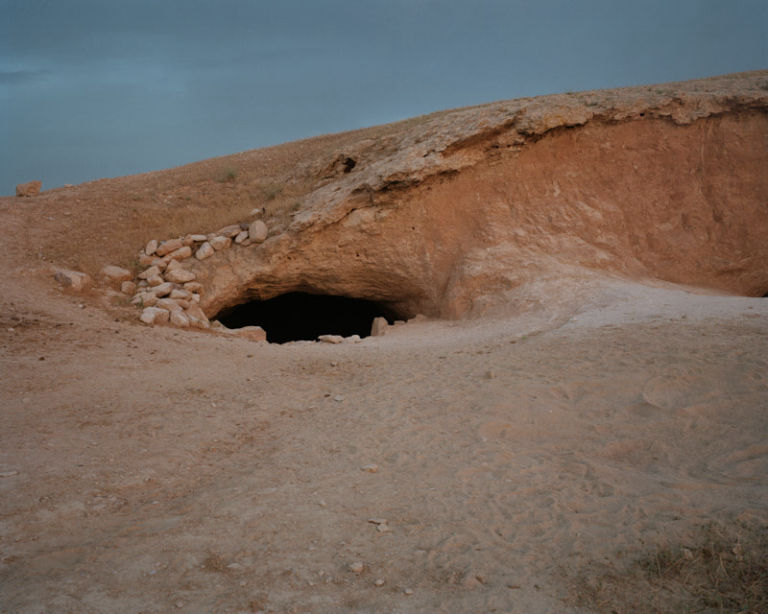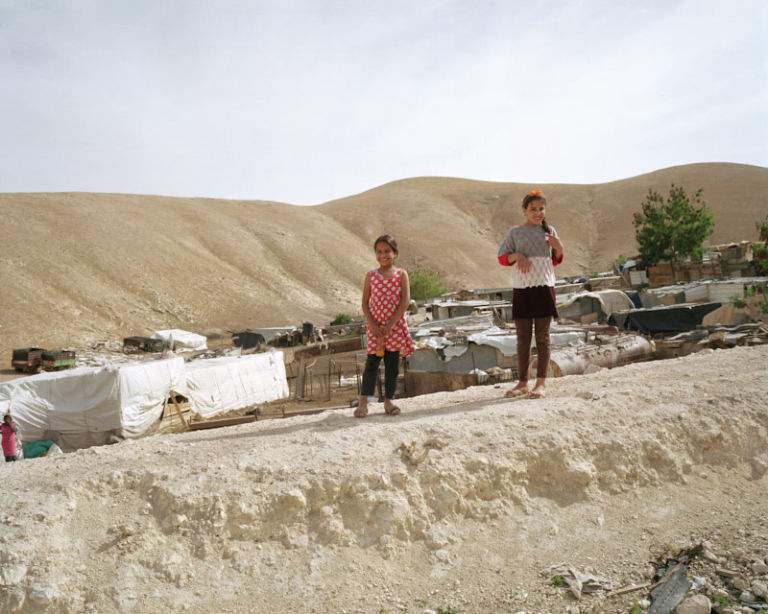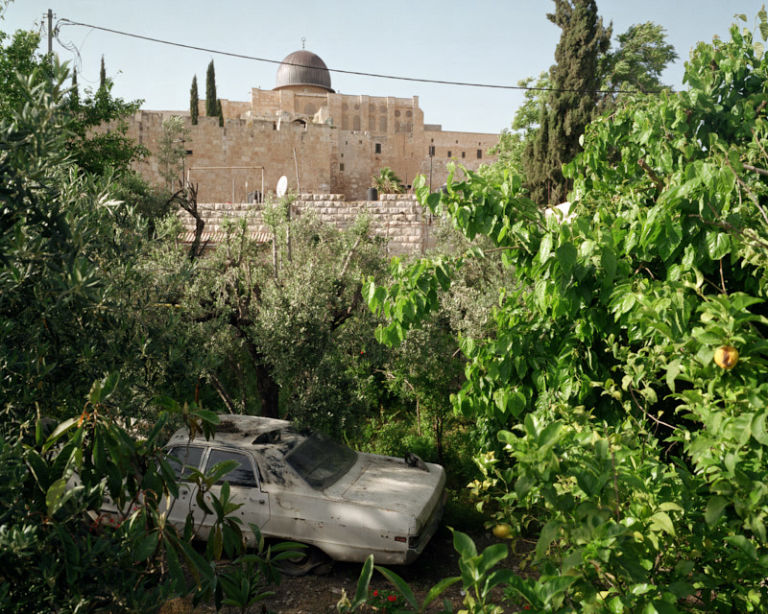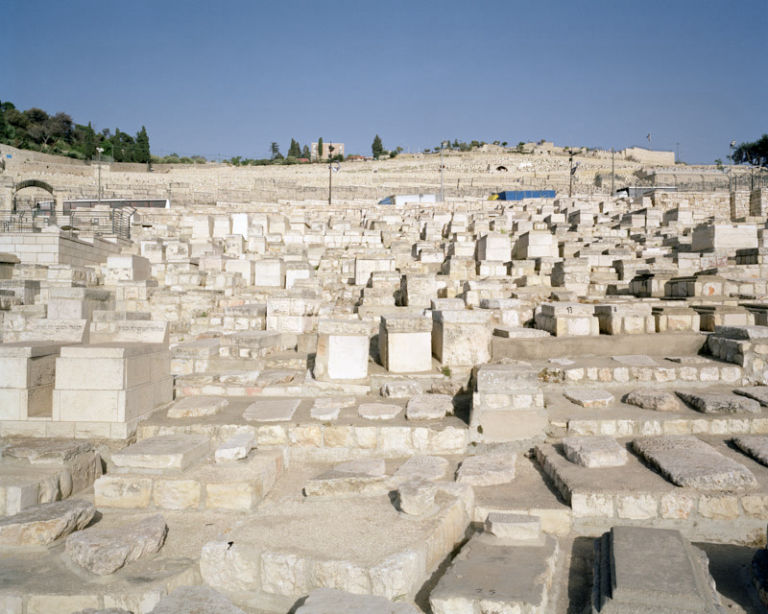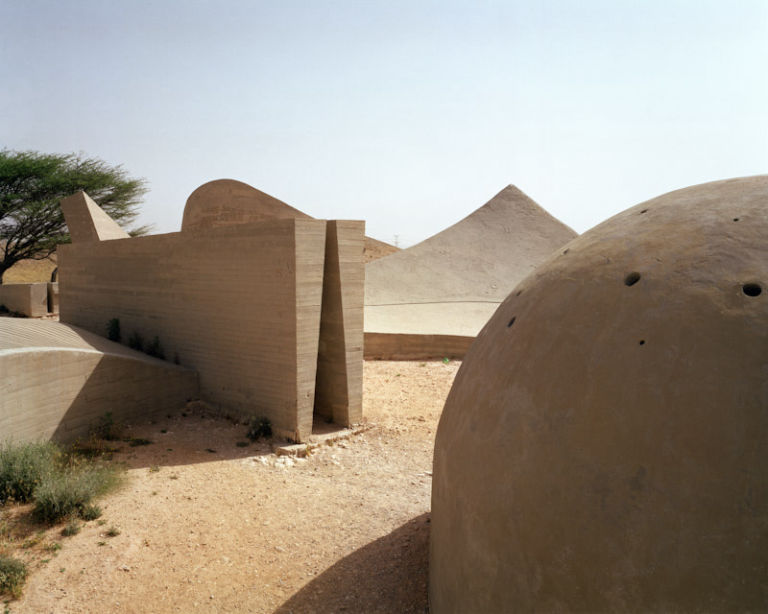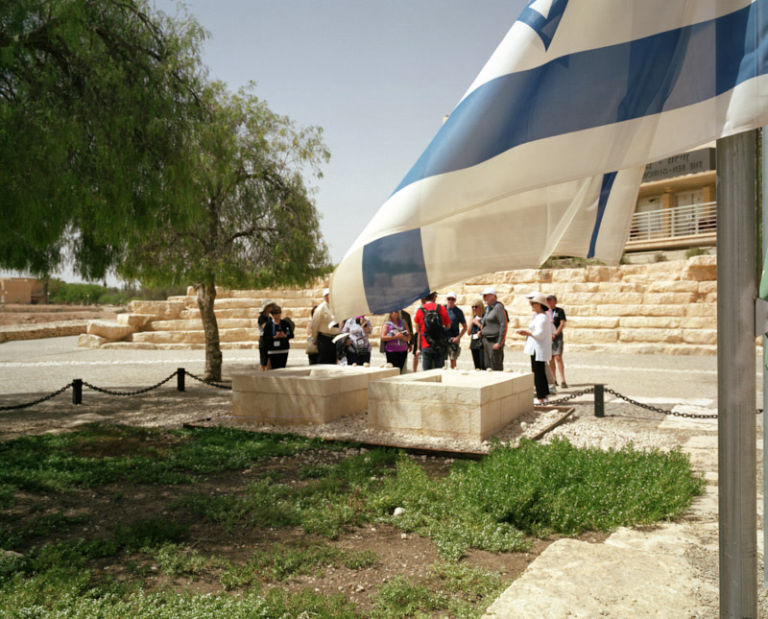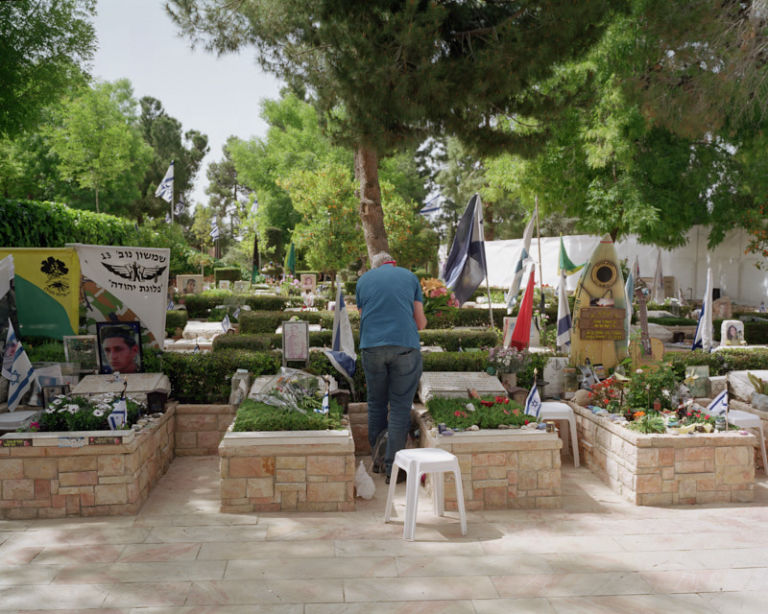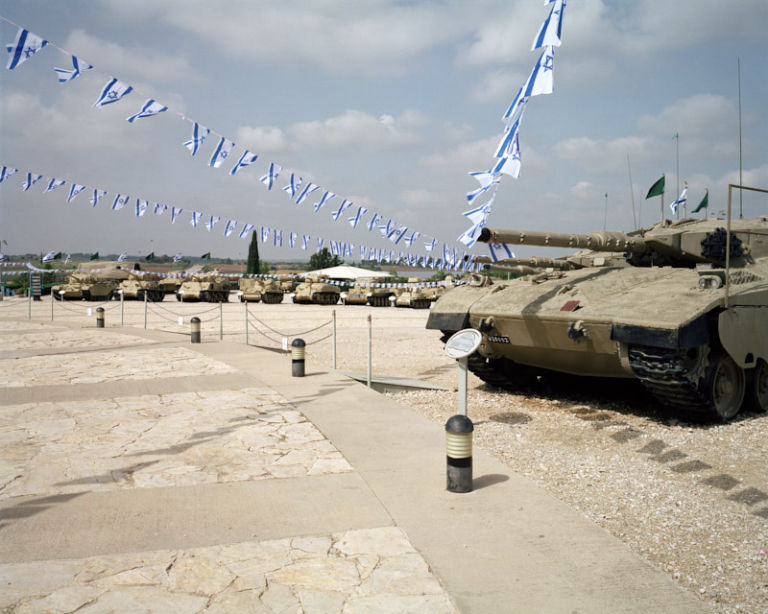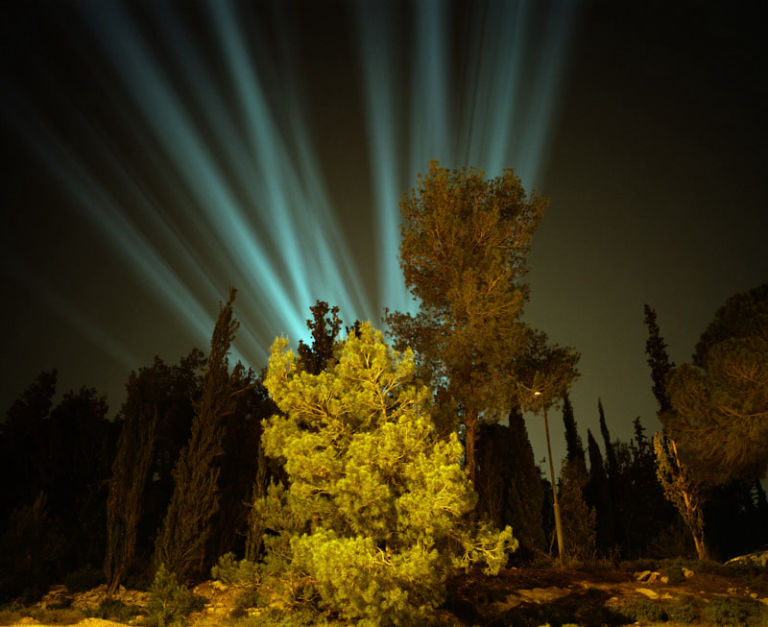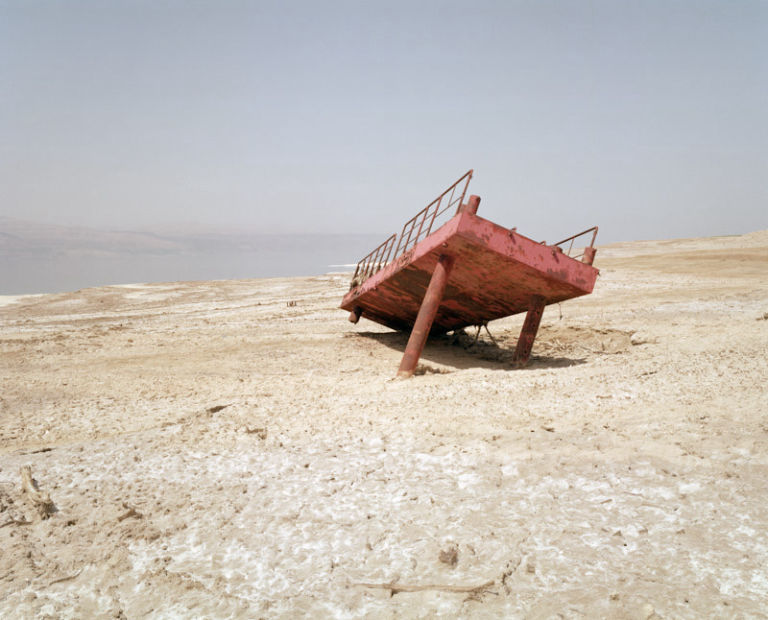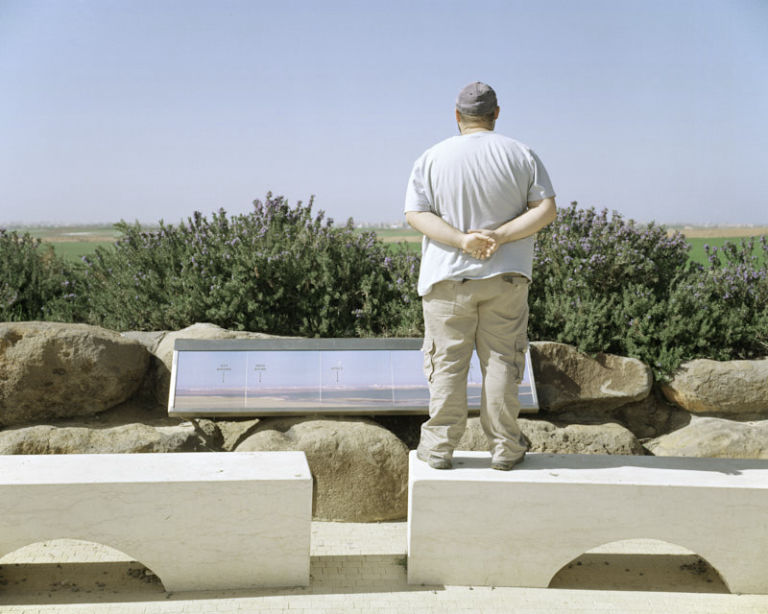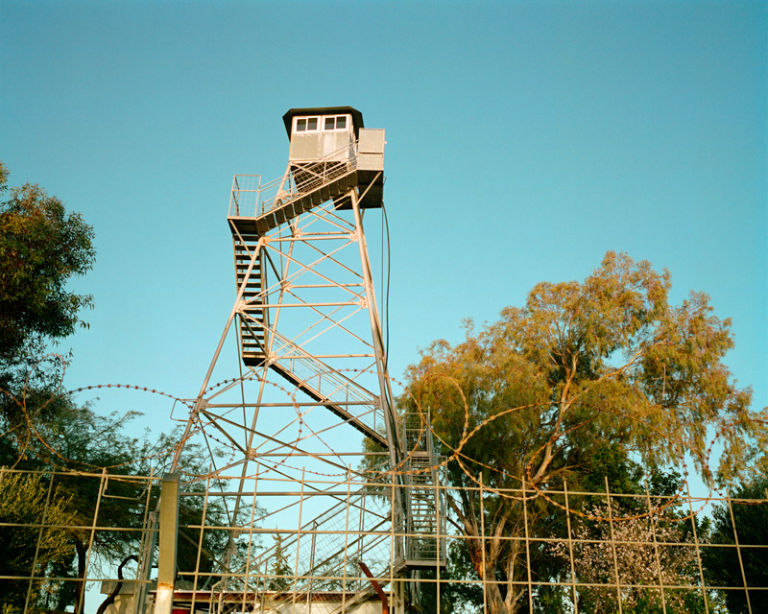Unlearning Nation
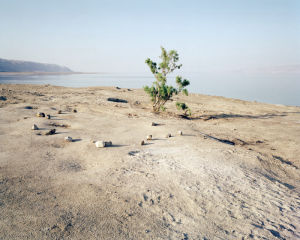
unlearn (verb) - Discard something learned, like a bad habit or false information from one‘s memory.
nation (noun) - A body of people united by descent, history or language, inhabiting a particular territory.
Is violence (too) often used - is this an addictive behaviour? According to therapists, every addiction is based on trauma. In Israel and Palestine many talk about traumata, but often it is not the Shoa that is meant – but the recent wars and the ongoing daily violence of the occupation. All societies need narratives to justify – or even hide – their own behaviour. Any forms of maladaptation are difficult to discuss because as such the reasons why they exist are most of the times hidden away.
Traces of traumatic experiences manifest themselves in Israel and Palestine in sites for the fallen, in changed landscapes, at the public grave of a mass murderer, in shelters, in abandoned enemy tanks, in publicly shown portraits of now dead people. These traces led me to create these images on Israel and Palestine, to find out what narrative I come up with between all the other multi-layered narratives.
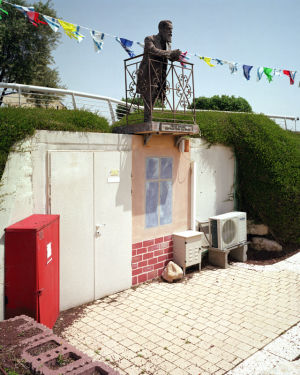
Israelisation of the world
"Israel is interesting for a discussion of the general disorder inasmuch as it shifted to regressive populist politics at least one decade before the global slide into populism we are now witnessing – what Christophe Ayad has called in a Le Monde article the Israélisation du monde (occidental)", as the Israeli sociologist Eva Illouz put it down down in her essay From the paradox of liberation to the demise of liberal elites. Ayad in his article is quite blunt: "La question identitaire a fini par se substituer à toutes les autres, pourtant bien réelles, à commencer par celle des inégalités sociales."
If Israel were a person, we might conclude, this person is addicted to the excessive use of violence. There are many narratives employed to defend the politics of violence. Nationalism as such is not bound to any political system, but it comes in handy for certain politics. It not only exploits situations of trauma but also creates new traumas by the use of implicit or explicit violence. In the case of Israel, some narratives base themselves on the mythical Holy Land, some draw on the traumas of the last 150 years. Deconstructing those narratives offers the possibility to get rid of vicious cycles and it counters the ones the power elites have put in place. Because who controls the past will as well control the future. What (big) narratives are now used and which will come next?
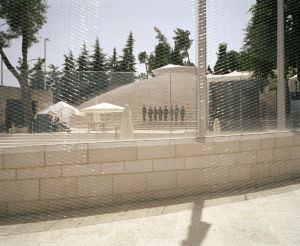
Carl Schmitt stated paradigmatically that who reigns (over) the emergency state is the one who really exercises power and therefore is able to determine the narrative of power. Schmitt's axiom is put to use in the Holy Land on a daily basis such as nowadays the settlers as calculating stirrers are the actual winners in politics. They stress an emergency state and put themselves consequently above the law, shown in the example, when they threaten to beat up or even shoot at the author of these lines without having to fear any consequences from the authorities. 'Law regards equity' as a principle is here annulled and this is considered in general terms as arbitrariness or despotism. This is quite remarkable for a religion or idealogy that has put 'law' in the forefront of the shop window. So, there is nothing less at stake as democracy itself, not only in the state of Israel, but as well here in the democratic Western Europe. What happens elsewhere informs not only political and cultural practices here, in today's globalised society undoubtly power elites have gained an influence that is unheard of and we actually should think of it as a force that is not too much in favor of democratic politics.
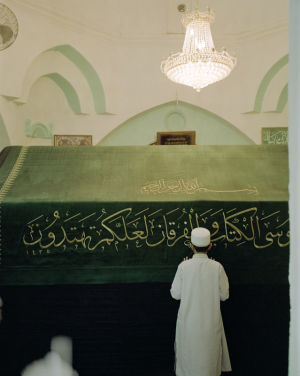
The title «Unlearning Nation» suggests to speculate for somehow other state – even if this (politically) hard to image and even less to bring to realisation. Even when taking in account that Zionism started out as an utopian idea and got off track on becoming a state - as many zionists early on admitted. Rosa Luxemburg's words "The [...] thing one can do is always to contest loudly what is happening" resound as a humanistic claim that places humans and not God or other supernatural instance in the focus of our attention.
Both sides foster narratives that do not match the one of the opposite side. During my research supported by Pro Helvetia Cairo (2011-2019) I learned how these complicated and complex narratives and traumatas manifest themselves not only visually as feedback-loops. In my pictures shows the observant flâneur who keeps his gaze open (for experiences), says Israeli photographer Miki Kratsman. This attitude is taken further into texts with fictitious dialogues in which I condense personal (local) encounters, cultural-historical observations and a multitude of readings. In these dialogues the possible truths around the images are negotiated and connected with each other – reality depends on fiction to emerge.
The research for this project has gained initial support from Pro Helvetia.
